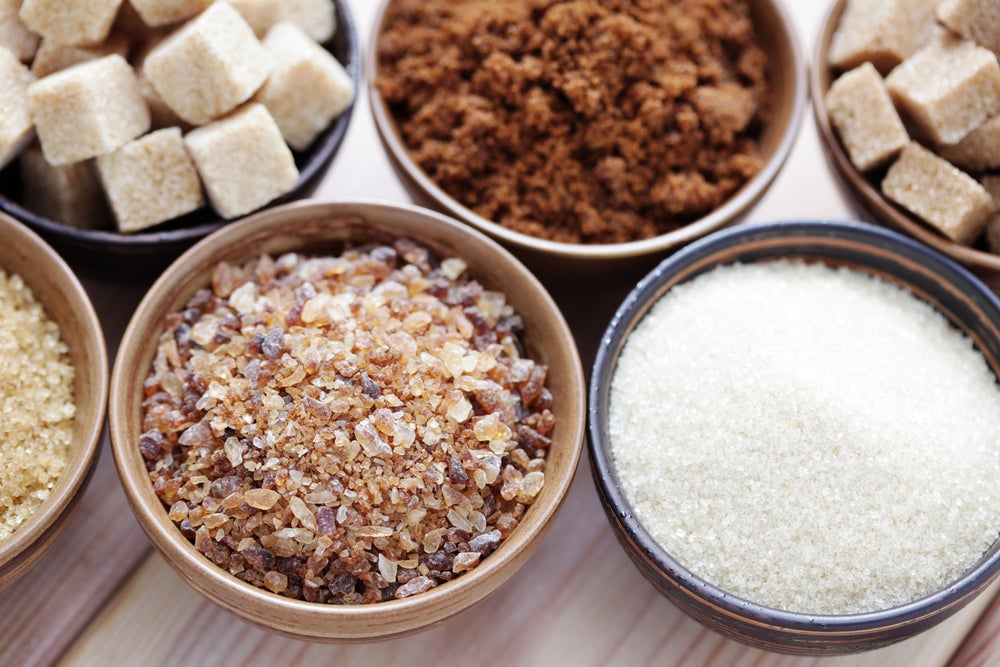How to Choose Sugar Substitutes

Looking to replace conventional white sugar, brown sugar, or corn syrup with alternative sweeteners? Below are a few key pointers for choosing the best ones.
Replacing white sugar: When you need the performance only white sugar can provide—neutral flavor, white color, the ability to make hard crack syrup or brulée—turn to organic white sugar. It’s vegan (not clarified through bone char as many white sugars are), less processed, and non-GMO.
On the “healthier” side, there are other alternatives, like evaporated cane, coconut sugar, date sugar, and maple sugar, but each has a strong flavor and a brown hue that can taint the look of your final product. Evaporated cane tastes strongly of molasses. Maple sugar makes baked goods taste like pancakes. Date sugar (ground, dehydrated dates) tastes raisin-y and sucks the moisture out of baked goods unless you add water. Coconut sugar is the most neutral of these, but still has a distinct flavor. If you have strong foreground flavors such as chocolate, peanut butter, or banana, the flavor of the sweetener will be masked.
Monk fruit sweetener is another sweet option. Naturally derived from the nectar of a small fruit that grows on vines in Asia, it boasts zero calories and has a low-glycemic index. Monk fruit sweetener is great in coffee, tea, smoothies, and even main dishes and desserts thanks to its well-rounded flavor profile. Since monk fruit is 100 to 200 times sweeter than table sugar, a small amount will suffice in cooking or baking. We like NOW Foods brand because it’s available in a variety of ways and flavors, including powders, liquids, and packets.
Replacing brown sugar: Brown sugar is white sugar with a little molasses added to it. To swap out brown sugar, use evaporated cane and coconut sugar for a sweet molasses note.
Replacing corn syrup: For light corn syrup, the easiest replacements are honey and agave. Rice syrup works too, but that stuff is thick like tar: whisk water into rice syrup to thin it down. For dark corn syrup, use barley malt thinned with water or maple syrup.
The wild cards: New sweeteners—yacon syrup, lucuma powder, stevia—are cropping up all the time. Each has a distinct, often overpowering flavor, and a prohibitive cost. They’re tough to find outside of major metropolitan areas, but try them out if you come across them, and taste for yourself.